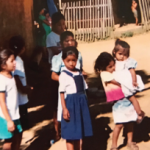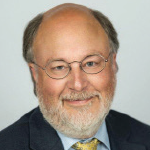Through the generosity of a colleague at the Brigham and Women’s Hospital in Boston, a polarized microscope was brought to Haiti and donated to the hospital. All of the lab technicians, in addition to the medical residents, were taught how to identify crystals. HUM is now, to the best of my knowledge, the only facility in Haiti capable of identifying crystals. It is anticipated that a microbiology lab will be up and running in the next few months, and cultures will then become available. Although serologies can be sent out, the additional cost may be prohibitive. The formulary was reviewed, and after discussions with the pharmacy and therapeutics committee, it is anticipated that both methotrexate and allopurinol will soon become available. These two agents were selected as a starting point in view of their relative low cost and high efficacy.
At the conclusion of my visit to Haiti, I made several observations, which attempt to answer the questions posed at the start of this article:
- The practice of rheumatology as it exists now in the U.S. has uncertain relevance to the least developed countries, and rheumatic disorders have a low priority in these regions;
- Short-term intervention by volunteer physicians, while effective in catastrophic and surgical care, is an irrelevant model for improving the care of patients with rheumatic disorders in these countries;
- The success of innovative, community-based, low-cost and sustaining programs in the treatment of both AIDS and multidrug-resistant tuberculosis gives one hope for the future in addressing other similar conditions;
- A comprehensive, multidisciplined and ambulatory-based program in the management of breast cancer has already begun at HUM. This could be a model for the future development of programs for the care of patients with rheumatic disorders or other similar conditions; and
- The education of healthcare providers in rheumatology with the initial focus being on physical exam and clinical decision making has potential in underdeveloped countries and is an area for possible growth and providing a meaningful role for volunteers.
The ACR’s Role
One has to ask: Should the ACR play a role in addressing the issues raised in this paper?
Currently, the educational programs of the ACR are appropriately focused on the needs of rheumatologists practicing in technically and economically advanced environments. I believe that efforts to train caregivers other than rheumatologists and to develop systems for the management of patients with rheumatic disorders in these underserved regions is worthy of consideration.


